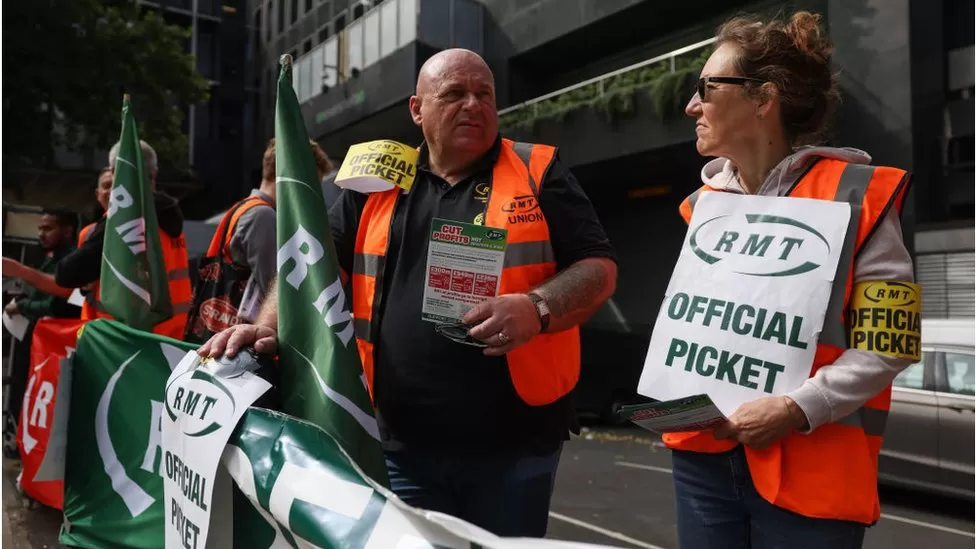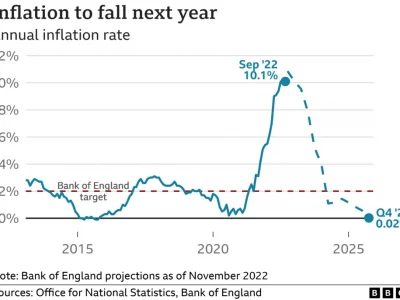Rail workers are to strike next month after the RMT union rejected the latest pay deal from train operators. RMT members will strike on 13 May, the day of the Eurovision Song Contest in Liverpool. Train operators said they had been “blindsided” by the strike and denied union claims they had changed their offer. It follows train drivers’ union Aslef calling strikes on 12 and 31 May, and on 3 June, the day of the FA Cup Final.
The offer by the Rail Delivery Group (RDG), which represents train firms, was aimed at ending the long-running dispute. But the RMT union said accepting it would mean no further strike action could take place further down the line. There had been ongoing discussions as the union and train firms tried to reach a deal.

Mick Lynch, RMT general secretary, said the (RDG), which represents the train companies, had “reneged on their original proposals and torpedoed these negotiations”. But Steve Montgomery, chair of the RDG Group said the union was “negotiating in bad faith, again denying their members a say on a fair pay deal, needlessly disrupting the lives of millions of our passengers, and undermining the viability of an industry critical to Britain’s economy”. Workers at 14 train operators will now go on strike for 24 hours on 13 May.
Pay Deal:
Previous strikes had been called off when it was clear a new offer from the train firms was on its way. The union had been considering the detail of the RDG’s latest proposals. They involved one year’s pay increase that was dependent on the union agreeing to go into a “dispute resolution process” and, the industry would say, accepting the general principle of changes to working practices. This would be followed by a second year’s pay increase dependent on those reforms being negotiated at individual operators. But the RMT has rejected the offer because it said it would not be able to call any more strikes if it accepted the first year’s 5% pay increase.
The industry argues that has always been clear. The union is currently balloting its members for another mandate for strike action lasting a further six months. There were no train strikes in the diary this morning. Now there are four, some of them falling on the day of major sport and music events. Any hopes the RMT’s dispute with 14 train companies was close to being solved, have now been dashed. It’s very much not over – unlike the dispute with Network Rail, which saw signallers and maintenance staff accept a deal in March.
The dispute with the train operators always looked harder to resolve than Network Rail, because of the changes to working conditions involved – the strings attached, from the unions’ perspective. There’s more misery for passengers on the way – hitting confidence in railway travel again – and workers will lose more pay. Train companies’ separate dispute with the train drivers’ union Aslef has never looked close to a resolution, and today it announced three more strike dates. But today’s announcement from the RMT was a surprise, and makes it hard to see how their dispute goes from here.
The RMT’s strikes have less impact than they did when Network Rail was involved too. But right now, it looks like there’s still plenty of disruption ahead. The government has a significant role – it holds the purse strings. It has shown no sign recently of being prepared to allow the train companies to put more money on the table. The last rail strike on 18 March meant only 40% to 50% of trains could run as workers across 14 train operators walked out. The ongoing dispute has affected services since June last year.
![]()





